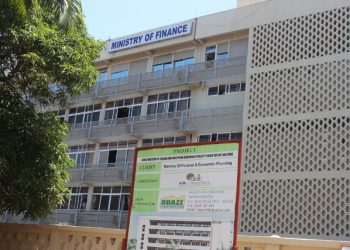
But…apart from the ridiculous beaurocracy, the systemic barricades, there are hundreds of thousands of skilled immigrants that are held up in frustration and are not given the chance to integrate productively into the job markets nor use their skills as they are not recognized. Nonetheless, let’s take a look at what Germany is promising and in the next weeks we shall go into other details.
Germany is among the European nations that are screaming at the top of their lungs as having skilled workers shortages and so says it is making new laws that would allow easier migration and create more environmental friendly opportunities to enable successful integration onto the job market.
I wonder why so many laws have to be passed every time and so much noise is made about it before it gets passed and why they just not uphold the already existing laws and make sure they are enacted to work in the first place.
How many years ago was the UN Migration Pact enacted into law that has sent Chaos in the global movement of people with many getting held up to drown on the oceans all over Europe in the first place.
Nonetheless, it says the first stages of a new law that will make it easier for skilled workers from outside the EU to move to Germany are expected to come in this November 2023.
The German government is said to have given its final approval for the law in July this year. The law is expected to come into force in three steps this November 2023, March 2024 and June 2024 respectfully.
The new law is aimed at attracting skilled foreign workers and combat labour shortages in the country.
Germany as we know has some of the most cumbersome systems to say the least about its immigration policies. It plans however to modernize again the country’s immigration legislation to make it easier for third-country nationals to work in Germany. This should allow about 60.000 non-EU workers in Germany per year.
This only leaves me asking the question as to why the existing skilled workers are still unemployed, work mini jobs, or jobs that leave both government and the people seeking.
Not to mention that, in the mist of all these, Germany continue to enforce both integration and deportation laws that contradicts the very things it seeks to do?
Amidst these loud announcements that promise such opportunities beyond the realities, one question one should ask is how about Germany enforcing a law that recognizes the skills of migrants already in the country and or put in place realistic mechanism to retrain migrants whose talents and skills are being wasted?
The reforms to the Skilled Immigration Act particularly should focus on workers with vocational, non-academic training. Sounds plausible except that, Germany has one of the highest industries that focus on vocational and non-academic skills yet admission into these industries to train to become skilled is very frustrating for those already in the country trying to enter the job market.
Germany is promising to relax existing rules for qualified professionals with university degrees. This would of course resolve half of its problems if actually Germany absorbs its migrant professionals with German university degrees so that after spending years in education, they don’t end up doing menial jobs to say the least if not face frustration over whether they must leave because the system could not support their successful integration.
Source: Ghadym| Germany





